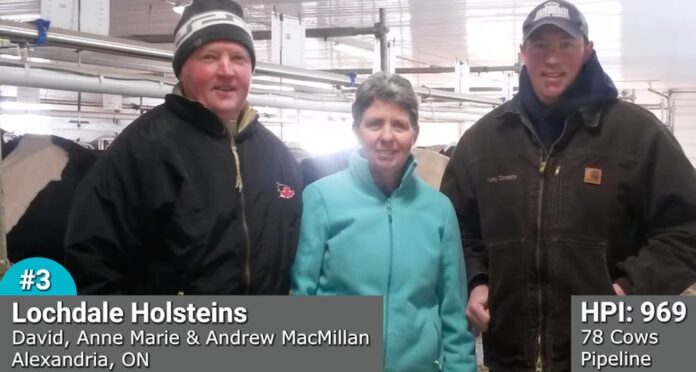Glacier FarmMedia – A feed ingredient designed to reduce methane emissions from cattle and dairy cattle can now be used in Canada.
also read

Lochdale Holsteins third in the Lactanet dairy performance awards
An Ontario farm had the third highest dairy herd performance index in Lactanet's annual national awards. Lochdale Holsteins, from Alexandria,…
Bovaer neutralizes methane in the rumen. When microbes break down feed, hydrogen and carbon dioxide are released. These two gases are combined in the presence of an enzyme. Bovaer suppresses the enzyme, reducing the amount of methane produced
Why it matters: The beef industry says Canada risks falling behind Europe, Brazil and Australia, where the feed additive is already approved.
DSM-Firmenich, the Dutch company that sells the product, says it could be available in Canada within weeks.
The additive's main purpose is to reduce methane emissions, but Canadian research has linked it to a small increase in feed efficiency without changing cattle growth rates.
“This will benefit Canadian farmers and the sector’s efforts and help Canada meet its international emissions reduction commitments such as the Global Methane Pledge,” said Mark van Nieuwland, vice president of the Dutch company’s Bovaer division.
The company said that by using the ingredient, Canadian livestock feeders could reduce methane emissions by an average of 45 percent.
For dairy cows, Bovaer “can reduce methane emissions by an average of 30 percent, potentially reducing the overall greenhouse gas footprint per liter of milk by 10 to 15 percent.”
A test run of the product in Alberta provided Canadian data to support the approval.
“In 2020, DSM-Firmenich successfully completed the longest and largest trial with Bovaer,” said van Nieuwland. “(It was) a two-year trial with 15,000 cattle in Alberta and supported by ERA (Emission Reduction Alberta) that showed a methane reduction of up to 82 percent, resulting in a saving of 1,473 tonnes of CO2e (emissions in carbon dioxide equivalents.”) alone during this study.”
Once the product is integrated into programs such as the REME (Reducing Enteric Methane Emissions) Protocol for Cattle and the Alberta Fed Cattle Protocol, livestock feeders will also be able to generate carbon offsets from its use, the company said.
The approval follows CFIA approval of 3-nitrooxypropanol (3NOP), the active ingredient in Bovaer.
“We are excited that the regulatory pathway is open for innovative feed ingredients that reduce methane emissions, which will help our sector meet its 2030 emissions target,” said Nathan Phinney, president of the Canadian Cattle Association.
“We applaud the CFIA for their diligence on this matter to ensure the availability of this new tool that will enable Canadian beef producers to remain globally competitive.”
According to a joint release from the CCA and the National Cattle Feeders' Association, 3NOP has shown no adverse effects on the rumen microbial population when fed to cattle.
“(Necessary)” indicates required fields
The Canadian beef industry has set a goal of reducing greenhouse gas emissions intensity from primary production by 33 percent by 2030. Dairy Farmers of Canada has set a goal of achieving net-zero emissions by 2050.
Karen Beauchemin, retired Canadian agriculture and food research scientist, was a key figure in Canadian research leading up to product approval.
“I think beef producers are interested in doing their part, but just focusing on enteric methane emissions is not going to get Canada where it needs to be by 2030,” Beauchemin said in a 2022 interview with Canadian Cattlemen .
Enteric methane emissions from cattle contribute an estimated 3.3 percent of Canada's total greenhouse gas emissions.
“One thing I question about consumers is that they have a real misconception about how much enteric methane from animals contributes to our national greenhouse gas budget,” Beauchemin said.
The product has been approved in more than 50 countries, but not yet in the USA (as of early 2024).















